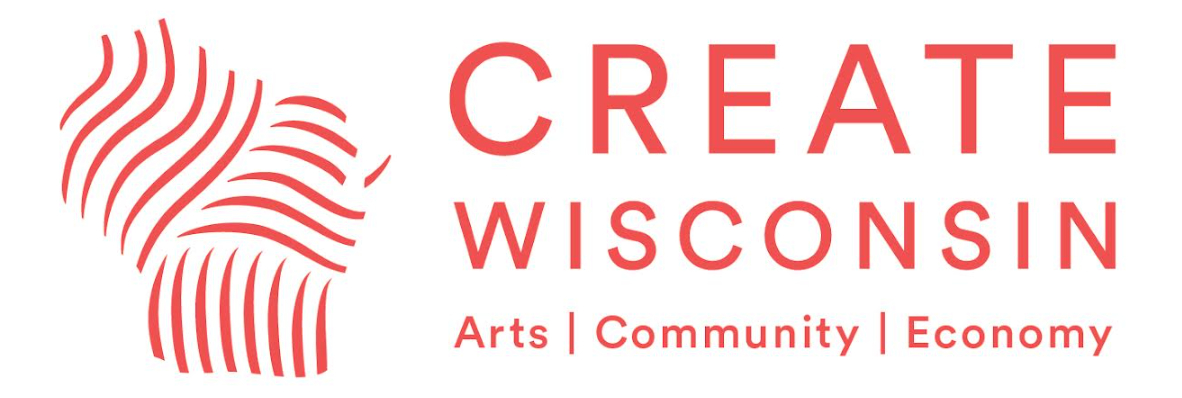CREATE WISCONSIN ACTION CENTER
the go-to place for news, updates, resources, and ideas about the arts, culture and creativity
Stay connected, speak out, and show up. There are no guarantees, and a lot of hard work ahead, but right now is a great opportunity to call for increased public investment in the arts and creativity statewide. More info and action steps are below. Advocacy is a fluid process and things can change quickly, so check back frequently and get in touch with Create Wisconsin with your questions and comments.
Talking points (including Facts and Figures)
Arts and Creative Economy Public Policy Agenda 2026-2027
What can you do as an advocate? Plenty!
Send a message to candidates (gubernatorial and legislative) and your legislators encouraging them to make the creative economy a priority in Wisconsin’s future. Click here for a template message that will go directly to your legislators. You can cut any of the information in the template message, and, please personalize your message with information about your work and your community. Go to myvote.wisconsin.gov for candidate information as it is available.
Advocacy Toolkit (continually updated)
Stay connected via this Action Center and Create Wisconsin’s social media: Facebook/Instagram @createwis and LinkedIn @Create Wisconsin.
Speak up for the arts, culture, and creativity at candidate forums and other community gatherings.
Invite decision-makers on all levels to see your work up close. Feature these representatives at a meeting, performance, exhibit event, etc.
Ask representatives to write an op-ed about the importance of creative economy investment for a newsletter or social media.
Watch for news about advocacy updates and training , in-person and Zoom meetings with legislators, legislative hearings, op-ed templates, template messages, and many other ways to make the case that investment in creativity is a win for Wisconsin.
State Elections and Budget Process Timeline 2026-2027:
February 17, 2026: 2026 spring primary.
April 7, 2026; 2026 Wisconsin spring election.
August 11, 2026: 2026 Wisconsin fall primary.
September 2026: State agencies provide their budget requests to the governor through the Department of Administration. The governor reviews the requests.
November 3, 2026: 2026 Wisconsin fall general election.
February 2027: The governor proposes the executive biennial budget.
March 2027: The governor releases capital budget. The capital budget allocates money for the creation, acquisition, or maintenance of fixed assets such as land, buildings, and equipment.
April – May 2027: The legislature’s Joint Committee on Finance (JFC) holds hearings and modifies the governor’s biennial budget and capital budget.
Create Wisconsin will organize testimony at JFC hearings around the state, and in-district meetings with legislators, March-June 2026.
June 2027: Assembly and Senate act/vote on the budget.
June 2027: Governor signs budgets; issues vetoes. The 2027-2029state biennial budget should be in place at the beginning of the new fiscal year, which begins July 1, 2027. There have been times when the budget process has gone well beyond July 1. It is important to note that state government does not shut down like the federal government. State agencies continue using the previous year’s budget numbers until the new budget is in place.
Resources:
Case statement: Wisconsin needs creative economic, workforce, and civic investment
Federal arts and creative economy funding issues
updated 9-30-25

